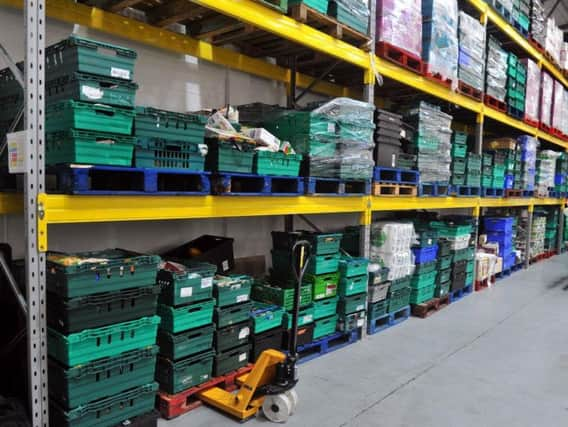Yorkshire firms urgently demand more warehouse space as Brexit panic hits region


Speaking at a meeting of Yorkshire politicians and business chiefs in the House of Commons this week, KPMG’s north region chairman said demand for extra capacity to store goods had surged as the UK’s exit from the EU draws near.
Chris Hearld said that companies preparing for all Brexit scenarios, including a no-deal exit at the end of March, were building up reserves of goods with many going from a few week’s to a few month’s worth of extra supply.
Advertisement
Hide AdAdvertisement
Hide AdBut he added that smaller business without extra space were being forced to urgently rent local warehouses to boost their storage capacity.


He told the meeting: “If the answer to your problem is to go from holding three week’s stock to three month’s that’s ok if you’ve got a spare warehouse, but it’s not practical if you don’t...
“There has been a notable uplift in demand for short-term warehousing supply.”
Last week the Yorkshire Post revealed that companies in Sheffield were stockpiling materials in anticipation of a no-deal Brexit.
Advertisement
Hide AdAdvertisement
Hide AdRichard Wright, chief executive of Sheffield Chamber of Commerce, said: “I am talking to businesses in Sheffield quite regularly and they are stockpiling goods.
“It is giving them real serious problems and giving them planning problems. Everyone is now in a situation where they are expecting the worst and anything else is a benefit.”
In yesterday’s meeting, which was hosted by the Yorkshire and Northern Lincolnshire All-Party Parliamentary Group, Mr Hearld also warned that Yorkshire firms were facing staff shortages as EU nationals were becoming increasingly reluctant to seek employment in the UK.
Workers from the continent, he said, were being put off by the falling value of the pound and uncertainty around their legal status.
Advertisement
Hide AdAdvertisement
Hide AdBut he added that this had prompted some business to look for British workers who had previously been deemed too “hard to reach”.
“The exchange rate impact on day one meant that it became immediately, overnight more difficult to attract EU workers,” he said.
“I think that a problem which began as a very financial issue around what rate of pay is needed to attract them, over the period since the vote has become much more of a hearts and minds issue around how you make those individuals feel welcome in that company.”
He added that this had led companies to ask: “How do I get to bits of the employment market that are traditionally hard to reach - people with very low skills, perhaps people who have got a past history, perhaps with criminal records or something like that that has made them previously more difficult to employ?
Advertisement
Hide AdAdvertisement
Hide Ad“Are these now a sector of the Labour market that I have got think a little bit more about how I get at them to compensate for the fact that my traditional routes to get an employment force in place are going to prove more challenging?”